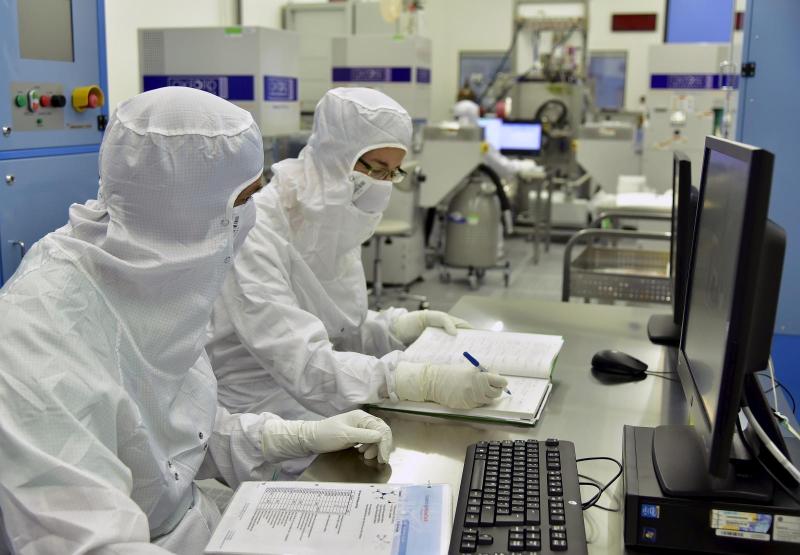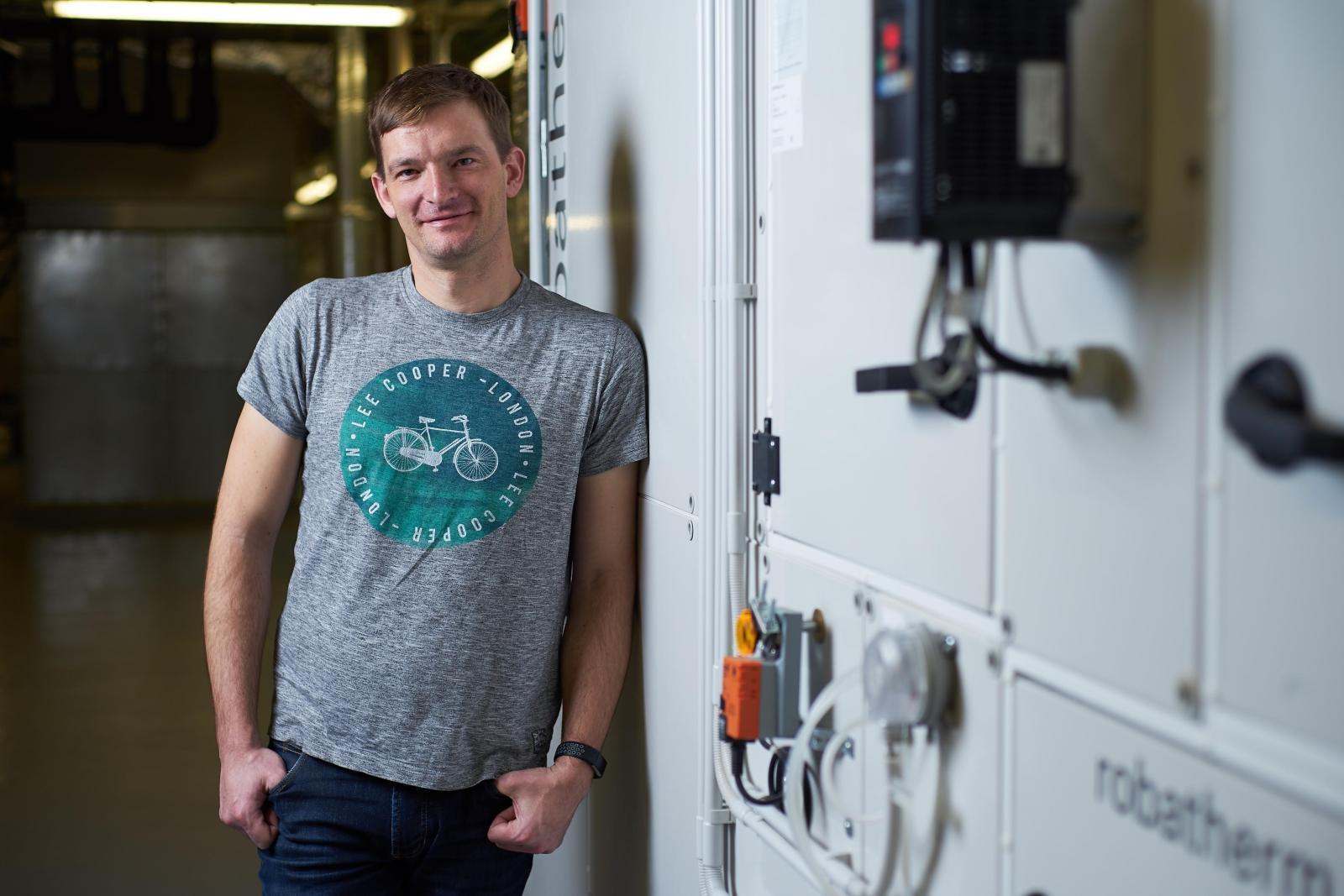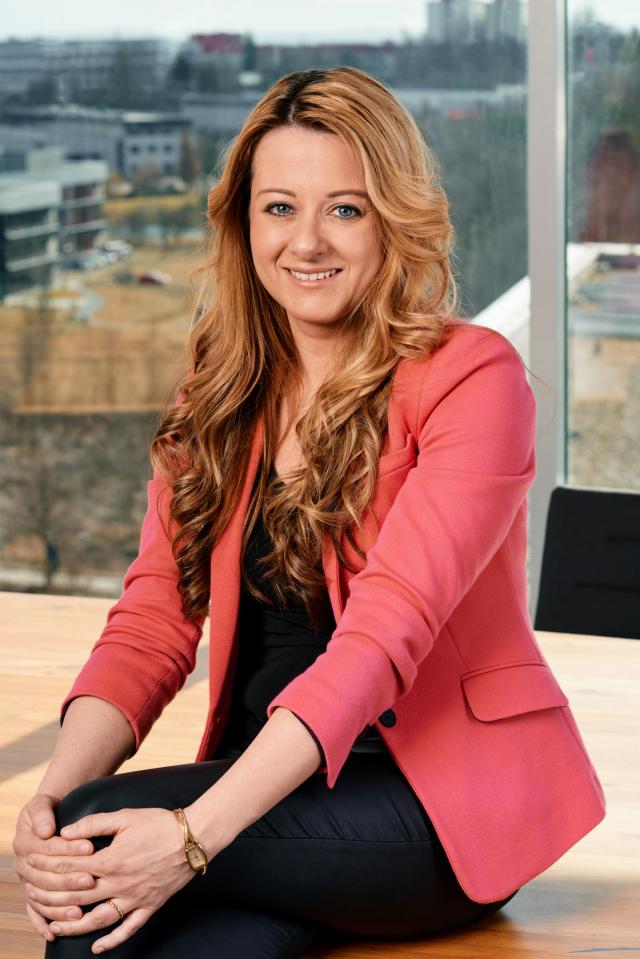Topic
A priceless offer. CEITEC will help researchers to bring the results of their work to the market

Have you made an interesting discovery in your nanotechnology research that would be worth commercializing, but you don’t know if it will succeed or where to start? CEITEC BUT in cooperation with JIC Innovation Agency offers a helping hand within the CEITEC Innovation Accelerator project. You will have access to equipment, high-tech devices, salary, help from CEITEC BUT staff and technicians, advice from JIC on your business plan and contact with your target company – regional, national or even international. The initiators of the programme, Michal Urbánek from CEITEC BUT and Veronika Štěpánková from JIC, answer questions about the unique project, the first of its kind, which helps to accelerate the process of commercialisation of ideas.
Why is it difficult for researchers to start a company?
MU: If I take it from the scientist’s point of view, a scientist focuses on solving one complex problem and moving on to the next complex task once the first one is solved. But just because one major problem is solved doesn’t mean the thing is ready for the market. There may be a thousand other small inconsistencies that, when they are solved by the scientist, won’t bring them any credit. To a scientist, it’s completely uninteresting. But if you want to start a company? It’s extremely important. It is great that I get 1 sample out of 20 right and I write a publication on it, but if I want to start a company, I need to get 19 out of 20 samples right. And that’s an awful lot of work for which there is no appreciation in the scientific community. So if someone wants to do that as well as their academic career, it’s very hard, and a lot of people eventually change their minds.
VŠ: When researchers come to JIC, they usually have some technology “in their hands”. They’ve tried a new approach, a new methodology, and now they think it might have commercial potential. What they don’t know is who they are actually solving a need for in the marketplace and who can, therefore, benefit from this technology. So they don’t have a product, but they have the technology, they have the knowledge, and they need to translate those into a product that a commercial partner can take, test, or specify some other parameters that they need. And that’s not addressed at the university. It’s natural because grants are not set up for that. When you get a grant as an academic, you’re doing research, you’re discovering something new, you’re not making a prototype – nobody would give you money for that. It’s basically a phase that’s called the Valley of Death because, as an academic, you can’t get the money to do it, and when you start a company, it’s terribly early because you don’t know your customer and their needs. That’s the phase that the new programme is supposed to bridge.

So what will the project help with?
MU: I will explain it with the example of my two PhD students. That’s when I realized that something wasn’t working here. And not only here, I think it’s a problem all over. They had an idea that they wanted to turn into a company. They were even trying it out in some way – registering the intellectual property. At first, they were enthusiastic, ambitious, and passionate, but the whole process was so complicated and vague that they gave up after six months. One of them went into academia and the other went into business. They didn’t know, and I was completely unable to advise them, whether what they had invented was an interesting enough technology to make a profit.
VŠ: The project will therefore not only create the right conditions for the candidates to work on the prototype, but we will also connect them with a national or even international company – with their future clients, who will tell them exactly what they expect from the product, what it should be able to do and under what conditions. We’ll offer them a comprehensive support package so they won’t get lost in their first steps of setting up a business. As the name of the project implies, we will speed up the whole process.
Can people from the commercial sector apply, too, or just academics?
MU: We don’t discourage people from companies. The important thing is that they are willing to devote time to it – full-time if possible. However, we expect that most applications will come from student researchers who are finishing their theses, or working on their PhDs. Postdocs and group leaders might also be interested. In general, anyone who needs to work with nanotechnology. The outputs can be in a variety of areas, from semiconductors to sensors and instrumentation to (nano)biotechnology.
VŠ: Ideally, we want to see that the person is 100% dedicated to the project. Prototyping is extremely demanding; they have to do market research, work on the business, and, in parallel, raise funding to get the startup off the ground. I honestly can’t imagine someone doing this in the evenings and after a day’s work.
Do they have to live in South Moravia?
MU: They don’t have to, but the resulting company should have its headquarters or a branch here. And if there are more branches elsewhere in the country, or even in the world, that will be up to the person, of course. It’s definitely a welcome scenario.

MU: They have to have an idea that is at a stage where it could be commercialized, but it is not yet refined to the point where they can take it to market immediately. And they must realise that they need a reasonable amount of time to finish it here in our lab to the point where they can see if it has any marketability. It’s important to mention that even failure counts. If, during or at the end of that work, they find it to be unfit to start a company, we will not ask for any refunds.
VŠ: Exactly, if someone is selected for the CEITEC Innovation Accelerator programme, that can be considered a success already and they can brag about it on their CV, even if they don’t start a company. This is because it is a person who has come up with an idea, who has been selected by a panel of renowned experts and whose idea has been judged worth exploring. And it’s not a shame that it fails, it’s just science. And what else should an interested party have – certainly some validation of the sub-elements from the lab ready. We expect them to maybe put a publication or reference in the application, although it’s not a requirement.
So what is the first step?
MU: To get interested parties to contact us. Maybe they can consult with us beforehand. Then, we ask them to write a project and how they intend to use the support. The project form is available for download on the website. It’s quite simple – they just answer questions in which they describe their idea. The project will then be assessed by a panel.
What will be available to the successful candidate?
MU: They will become a CEITEC BUT employee, and that way get the means to earn a salary that will be sufficient to avoid having to spend their evenings working in fast food restaurants and to concentrate on building their future business. Plus, they will have free access to all the facilities, and they will be able to act as an employee of an academic institution. Were they treated as a corporate customer, it would be unbearably expensive for a new company or a startup. This means that they will get a grant worth a million crowns, but they will also get the added value of many millions of crowns because they will be able to use all our high-end equipment, the acquisition value of which is close to one billion crowns. Moreover, they will be assisted by staff and technicians who know how to work with it. The bottom line is that it’s a priceless offer.
VŠ: They will have three support people at hand: a mentor to help with the prototype, a business consultant and an expert from a company close to the target market. Plus they’ll have regular reporting. They will work at CEITEC BUT, but they will also be given the opportunity to leave the academic environment, at least partially, and get in touch with other entrepreneurs, meaning they will also have the option to use the space a few meters next to CEITEC – at JIC.
If they are listed as a CEITEC employee, the intellectual property belongs to the academic institution according to the law. How will this be handled?
MU: Of course, we want the person in question to be the head of the resulting company because they came up with the idea in the first place. Usually, the university has a minority share of a few percent. Sometimes it is necessary for the company to continue to cooperate with the university.
VŠ: It also depends on the work's outcome – it could be co-ownership of patents, a spin-off company, or a start-up; the possibilities are all there. So, it may or may not be with a university share. We will always look for win-win situations on a case-by-case basis.
Can a team of people apply?
MU: Only one person can apply for the programme, the one who then starts the company. But of course, the group of people who bring know-how to it can be bigger. It’s up to them how they divide the shares.
VŠ: If it were a group of people, they should send someone to the Accelerator who has entrepreneurial ambitions. In the end, it is up to the researchers how they divide the shares among themselves. However, the shares should not be divided primarily according to the past but according to the future. This is actually the decision-making power in the company. And the people who actively work in the company should also make the decisions.
Author: Mgr. Kristýna Filová
Source: CEITEC BUT
From a student project to a successful international company. NenoVision co-founder Jan Neuman urges students not to let their ideas sleep in a university drawer
In Brno she found her second home and her dream job. A theoretical scientist from Iran shares her perspective on life in the Czech Republic
High Entropy Oxides: Awarded PhD student Erik Ščasnovič works on research and development of new ceramic materials
Bismuth as a cheaper alternative to gold
Researchers are discovering the hidden possibilities of industry and setting a new direction in biology. In the brand new CT laboratory